Meet Karina Seebaluck(she/her)
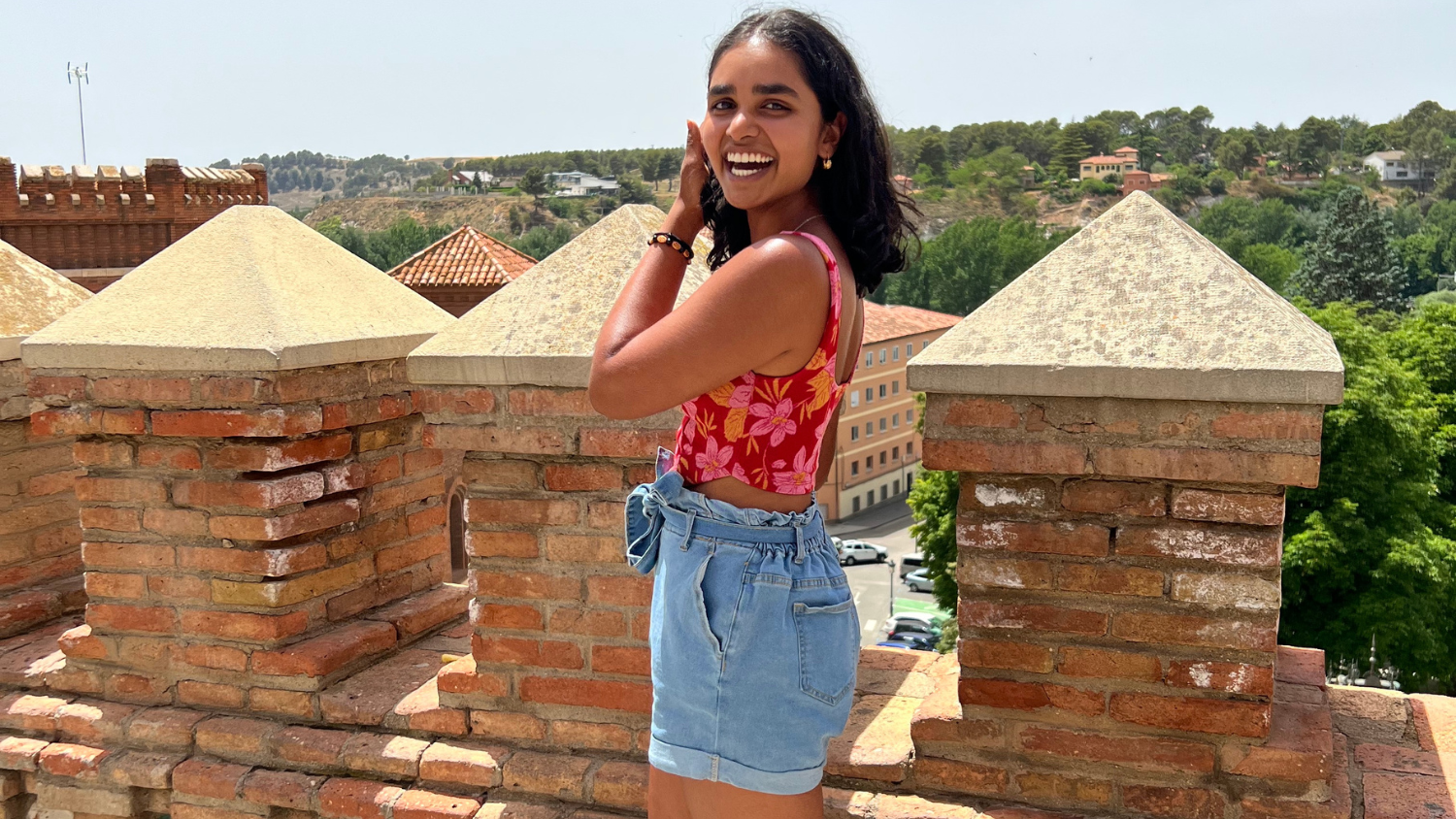
Program and Location:
Summer, Spain: Language and Culture in Valencia; Valencia, Spain
Minor:
Psychology and Spanish Language & Literature with Cognitive Science and Nonprofit Studies minor
Why did you choose to study abroad?
I knew I wanted to study abroad as I applied to colleges in 2020. I chose to study abroad because I wanted to immerse myself in the Spanish language along with its culture. I strove for the opportunity to compare the Spanish culture with the Mauritian-American culture with which I grew up. I also wanted to push myself out of my comfort zone by exploring the unknown within the safety net of a study abroad program.
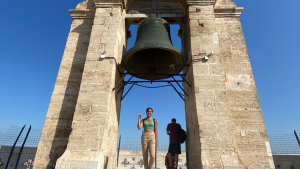
What did you learn about yourself?
I learned to trust my intuition with my decisions. Before leaving the United States, I looked to others to verify the academic and personal choices that I was making. Learning abroad in Spain forced me to think for myself and practice self-reliance since the majority of my friends and family were thousands of miles away. I also learned that I am resourceful. My roommate and I often found ourselves in situations where we had to do our own research on sites in Valencia, logistics within the program, and how we can make the most out of our experience abroad. Finally, I learned to be kind to myself. When I first arrived in Spain, I expected to fully understand the Spanish that was being spoken to me; however, this was not the case. The moment that I recognized that my Spanish proficiency was a work in progress was the moment that I was able to fully enjoy my time abroad.
What was one of your favorite parts of your program?
My favorite parts of the program were the dinner time conversations I had with my host family and the impromptu adventures that my friends and I went on during the downtime in our activities. While we had activities planned out, I enjoyed letting my curiosity guide me as I explored Córdoba, Teruel, Valencia, and more with trusted friends in the program. We dined at different restaurants and relied on TikTok and Google Maps to experience different places on a budget.
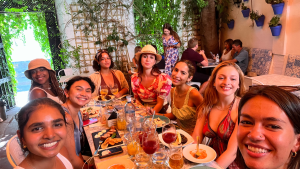
What was your experience with navigating COVID-19 abroad?
My roommate got COVID, so I had to relocate to temporary housing for 5 days. Since it was a five-week-long program, 5 days was a large chunk out of the time we had abroad. I did not know where I was going to be staying until we arrived at the temporary housing; however, it all worked out in the end. A few additional people in my program also got COVID, so we wore masks while we were inside of UVA Valencia.
How did your study abroad experience prepare you for your future career?
As mentioned before, my study abroad experience prepared me to utilize the resources at my disposal, network with others, practice self-reliance, and communicate with others. I plan to use these skills as I navigate my gap year, graduate school, and licensure to become a clinical psychologist.
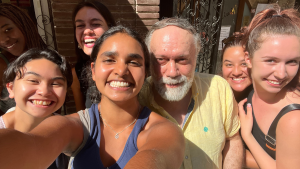
In what ways did your identity have an impact on your experience abroad?
Aside from my brothers and me, my entire family is fluent in French. Growing up with parents from Mauritius, I wanted to learn French to better connect with my cousins. I saw how my mom lit up whenever she would talk with relatives from there in Mauritian Creole and I wanted to bond with her in that way as well. When I was presented with the opportunity to learn a second language in middle school, I originally went with French; however, my mother convinced me last minute to learn Spanish. While I was upset for not directly learning more of my family’s mother tongue, I found that I began to understand more French as I learned more Spanish. This was a motivator for me to learn more Spanish until I fell in love with Spanish on its own. Some assumed that I was fluent in Spanish or Hindi when I was abroad due to the way that I looked. While I was flattered by that assumption, I felt bed that I couldn’t live up to that expectation because I was still learning Spanish and my parents do not speak Hindi.
Where did you find support to navigate any challenges you faced abroad?
I would reflect on it in my personal journal or call my family to vent over the phone. During the third weekend in the program, I traveled to London to see my aunt and cousins who live over there, and this served as a much-needed break.
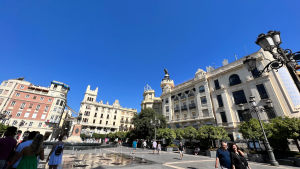
Is there any advice you would give to other students who share your identity?
Imposter syndrome is going to be real. In moments like these, understand that while you’re a work in progress, you are also a product of your environment. You cannot control what you have learned from the surroundings you grew up in. Being different than the majority does not mean that your identity is invalid. I grew up believing that I look the part, but I don’t play it right; however, I am trying to define for myself what “right” means. Feeling prideful in my heritage is a process, yet I’m approaching it with a sense of gratitude and an open mind for learning. While I don’t know much about Indian culture, I want to learn from my friends who are willing to share their experiences and the same goes for cultures outside of Mauritius or India.
What advice do you have to future study abroad students?
Learn to trust your intuition and open yourself up to new opportunities. Studying abroad is such a unique experience, so it’s important to make the most out of it by going out of your comfort zone every day. Do things that you never thought you would do (hiking, swimming at a beach, planning trips to other countries, etc.) You will not regret it and you will leave with a renewed sense of trust in yourself.
Would you do it again?
Absolutely. I am actually trying to see if it’s possible to study abroad within the rest of the time I have at NC State.